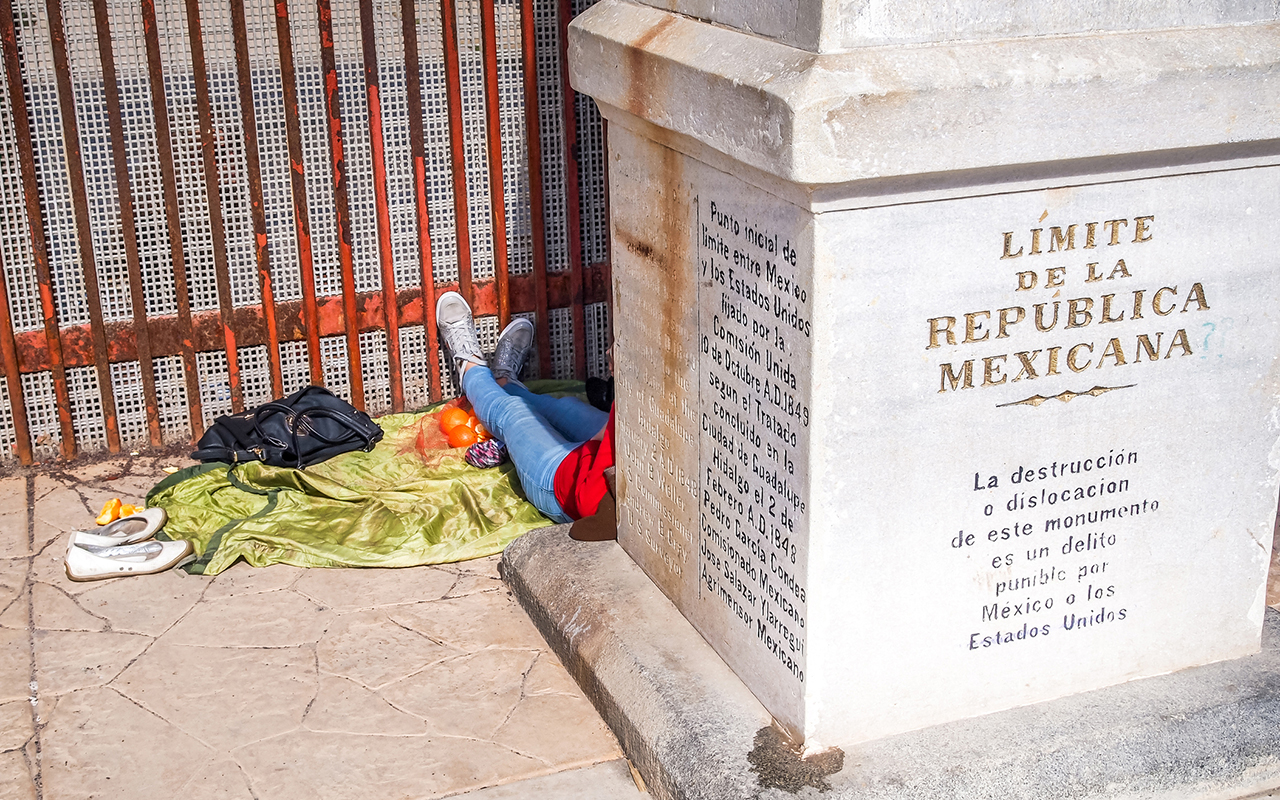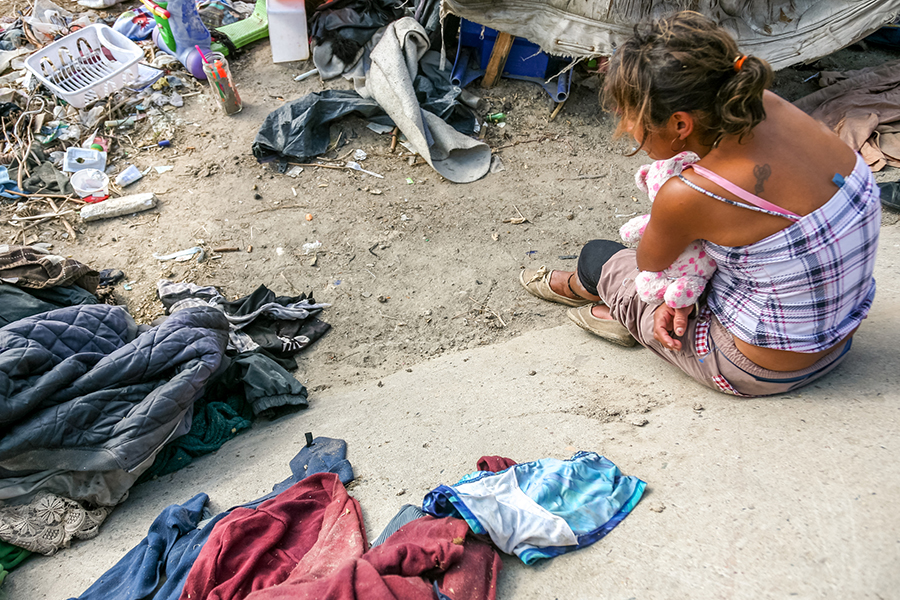‘Remain in Mexico’ Asylum Seekers Face Numerous Risks
Published Date
By:
- Inga Kiderra
Share This:
Article Content

A person at the U.S.-Mexico border in Tijuana, Mexico. Photo by www.istockphoto.com/photobeto.
New data from the U.S. Immigration Policy Center at UC San Diego show that many asylum seekers who have been returned to Mexico to await their immigration hearings under the Department of Homeland Security’s Migrant Protection Protocols (MPP), or “Remain in Mexico” policy, express fears of returning to the country and report that their persecutors can find and access them there. Yet they’re returned anyway.
These asylum seekers also face numerous other risks in Mexico, the USIPC report finds, including violence and homelessness. Among the key findings of the report are that approximately 1 out of every 3 asylum seekers returned to Mexico under MPP will likely be threatened with violence while waiting in Mexico before they make it to their immigration court dates. And approximately 4 out of every 10 will likely experience homelessness while waiting in Mexico.
The USIPC partnered with migrant shelters in Tijuana and Mexicali, Mexico to conduct the surveys from July 2019 to October 2019. A total of 607 asylum seekers were interviewed. According to the report’s co-authors, this makes their report the most comprehensive analysis to date of the impact of the Remain in Mexico policy.
The report’s lead author is Tom K. Wong, founding director of the USIPC and associate professor of political science at UC San Diego. He was assisted by USIPC Immigrant Rights and Justice Fellow Vanessa Ceceña.
“The Remain in Mexico policy has begged important questions about whether there are sufficient safeguards in place to ensure that the lives and freedom of asylum seekers are not threatened,” said Wong. “The data show that there are not sufficient safeguards – lives are literally being put at risk.”

Central American migrant living on a canal near the border wall between the United States and Mexico in Tijuana, Mexico. Photo by www.istockphoto.com/photobeto.
Highlights of the main findings are:
- More than 63 percent of respondents were asked by U.S. immigration officials about fear of being returned to Mexico. Of these, nearly 9 out of every 10 (89.5%) responded by expressing fear. However, only 40.4% were given a secondary interview while 59.6% were not given a secondary interview. In other words, approximately 4 out of every 10 had their fears further investigated but approximately 6 out of 10 did not.
- Nearly 2 out of every 3 respondents (63.9%) who expressed fear of being returned to Mexico and were given a secondary interview reported that their persecutor(s) can find and have access to them in Mexico, but were returned to Mexico anyway.
- Just 17.1% of the respondents said they were given information by U.S. immigration officials on how to access legal services in Mexico and 19.7% on how to access social services, such as housing and food.
- Approximately 1 out of every 4 respondents (23.1%) have already been threatened with physical violence while in Mexico as they await their immigration court dates. The longer the wait, the higher the likelihood of actually experiencing the violence.
- Approximately 1 out of every 3 respondents, including those seeking asylum with children under the age of 18, have already experienced homelessness in Mexico as they await their immigration court dates.
The average age of the asylum seekers surveyed was 32.8 years and the median 31 years, with 58.1% female and 41.9% male. Most were from the Northern Triangle in Central America, especially Guatemala (49.6%) and Honduras (37.8%). There were smaller percentages from El Salvador, Nicaragua, Cuba, Ecuador, Venezuela and Colombia.
The average wait time – between being processed by U.S. immigration official and the scheduled court date – is 88.6 days and a median of 94 days, with a minimum of 15 days and a maximum of 245 days.
The full report is available as a PDF on the USIPC website. There is also an accompanying policy brief (PDF).
In August 2019, the USIPC released a report documenting the conditions and treatment of approximately 7,300 asylum-seeking families held in immigration detention in the United States. More than 85% reported issues with food, water and sleep. Fewer than half said they had access to a clean and sanitary toilet. Nearly 90% reported overcrowded conditions. You can download that report here (PDF).
Share This:
You May Also Like
Stay in the Know
Keep up with all the latest from UC San Diego. Subscribe to the newsletter today.



